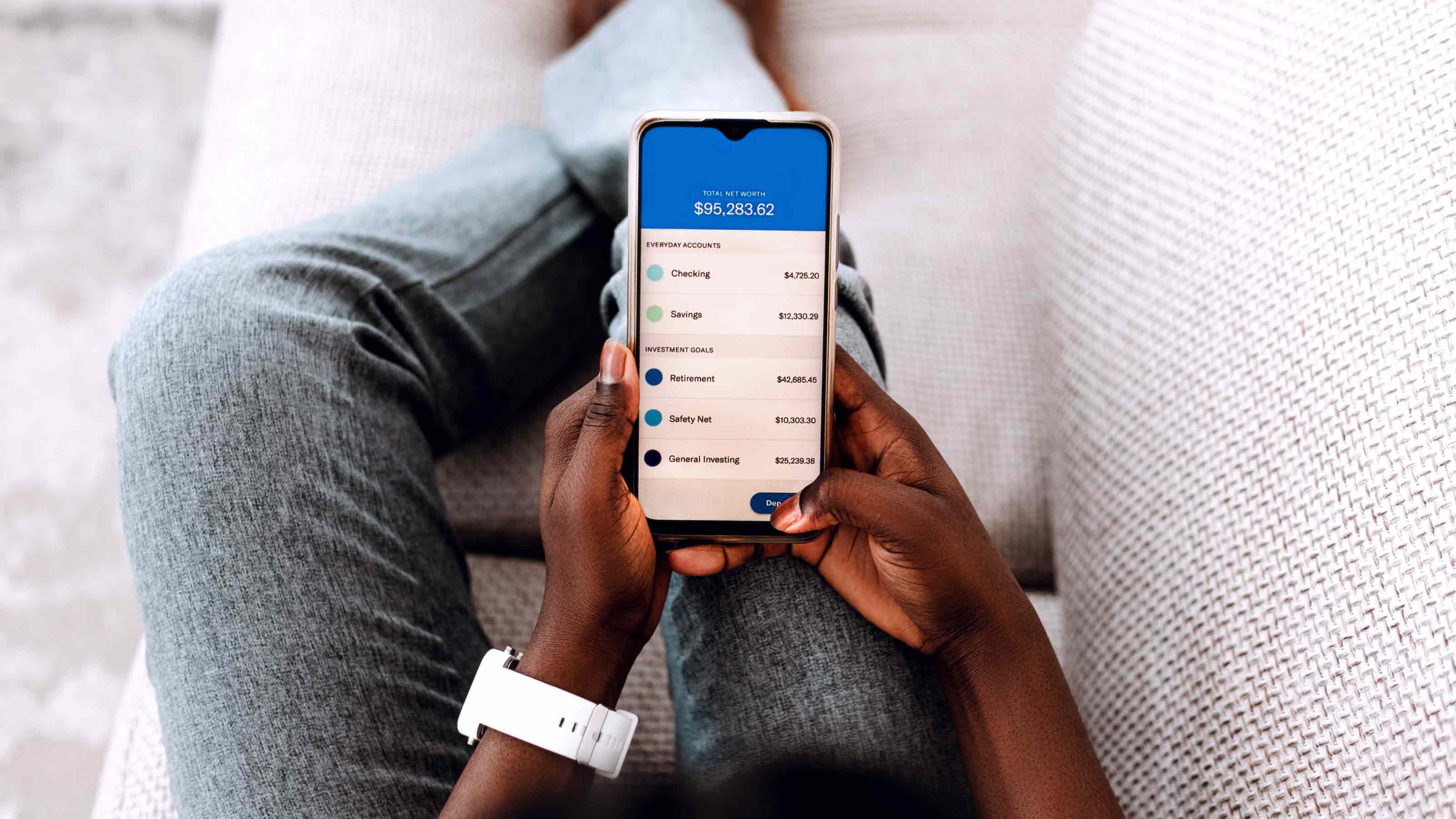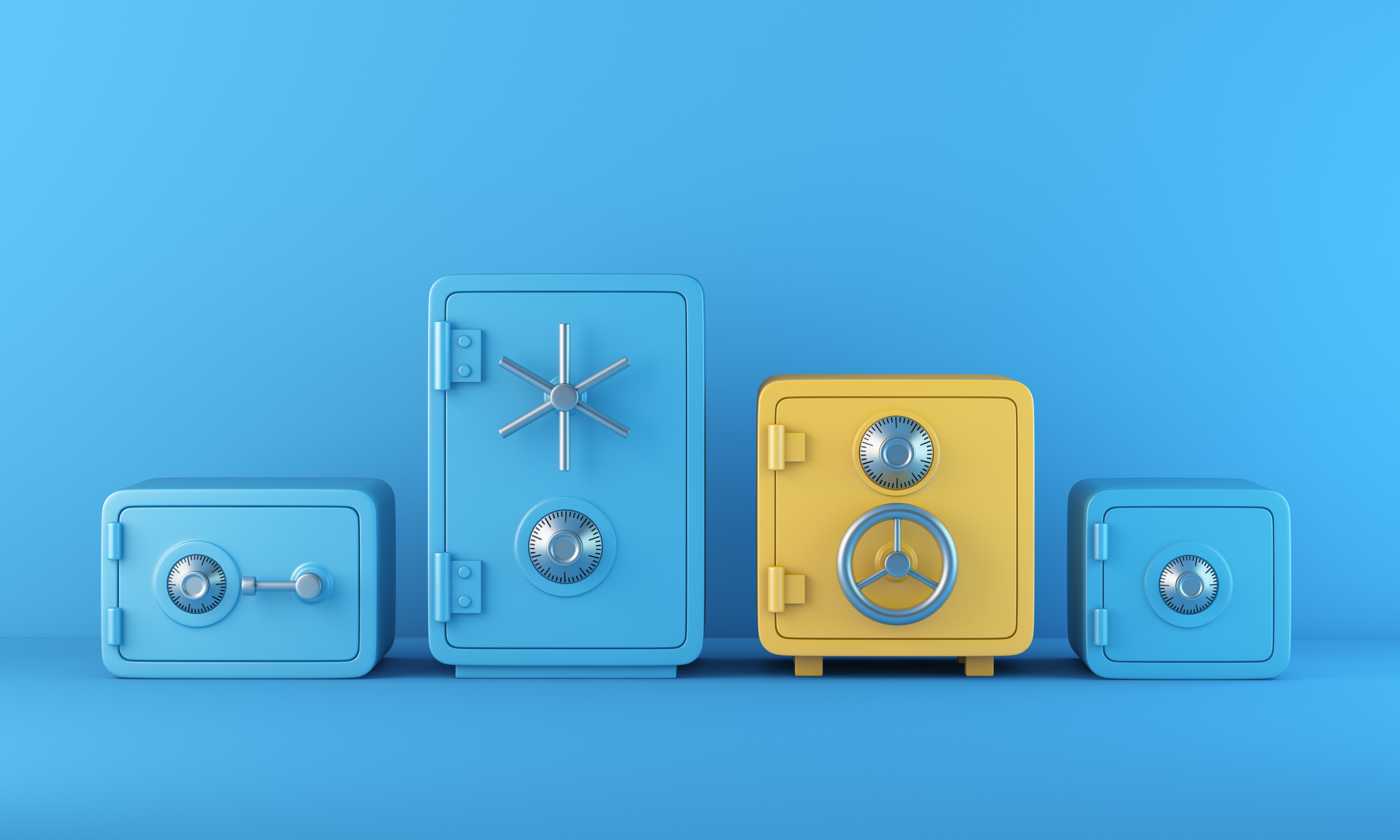Pushing the FDIC $250,000 Limit
If your bank or credit union balance exceeds the limit, you can still be covered by FDIC insurance with planning.


Profit and prosper with the best of Kiplinger's advice on investing, taxes, retirement, personal finance and much more. Delivered daily. Enter your email in the box and click Sign Me Up.
You are now subscribed
Your newsletter sign-up was successful
Want to add more newsletters?

Delivered daily
Kiplinger Today
Profit and prosper with the best of Kiplinger's advice on investing, taxes, retirement, personal finance and much more delivered daily. Smart money moves start here.

Sent five days a week
Kiplinger A Step Ahead
Get practical help to make better financial decisions in your everyday life, from spending to savings on top deals.

Delivered daily
Kiplinger Closing Bell
Get today's biggest financial and investing headlines delivered to your inbox every day the U.S. stock market is open.

Sent twice a week
Kiplinger Adviser Intel
Financial pros across the country share best practices and fresh tactics to preserve and grow your wealth.

Delivered weekly
Kiplinger Tax Tips
Trim your federal and state tax bills with practical tax-planning and tax-cutting strategies.

Sent twice a week
Kiplinger Retirement Tips
Your twice-a-week guide to planning and enjoying a financially secure and richly rewarding retirement

Sent bimonthly.
Kiplinger Adviser Angle
Insights for advisers, wealth managers and other financial professionals.

Sent twice a week
Kiplinger Investing Weekly
Your twice-a-week roundup of promising stocks, funds, companies and industries you should consider, ones you should avoid, and why.

Sent weekly for six weeks
Kiplinger Invest for Retirement
Your step-by-step six-part series on how to invest for retirement, from devising a successful strategy to exactly which investments to choose.
Question: I inherited more than $250,000 in cash. Do you recommend leaving funds for the short term in a regular bank account that only has the normal $250,000 of FDIC insurance?
Answer: Bank failures have been rare in the past few years. When the FDIC closed the Enloe State Bank of Cooper, Tex., in May, it marked the first bank failure since December 2017. If your money is in a large bank, it’s extremely unlikely that it will go under, and your risk is even lower if you don’t plan to leave the excess deposits in the bank for long. But if you want the peace of mind that this important federal protection provides, there are several steps you can take to make sure the amount of the estate that exceeds the limit is insured.
The FDIC insures up to $250,000 per person, per bank, per ownership category. (Credit union deposits are insured under the same terms by the National Credit Union Share Insurance Fund.) Coverage is automatic whenever you open an account at an FDIC-insured bank (you can check an institution’s eligibility at https://research.fdic.gov/bankfind). Checking accounts, savings accounts, money market deposit accounts and certificates of deposit are covered by insurance. Annuities, mutual funds, stocks and bonds aren’t covered, even if you buy them from a bank.
From just $107.88 $24.99 for Kiplinger Personal Finance
Become a smarter, better informed investor. Subscribe from just $107.88 $24.99, plus get up to 4 Special Issues

Sign up for Kiplinger’s Free Newsletters
Profit and prosper with the best of expert advice on investing, taxes, retirement, personal finance and more - straight to your e-mail.
Profit and prosper with the best of expert advice - straight to your e-mail.
If a bank closes, the FDIC usually pays insurance within two business days, either by providing depositors with a new account at another insured bank or by issuing a check for the insured balance of the account at the failed bank. Customers with uninsured deposits won’t be reimbursed until the bank is liquidated, and they may receive only a portion of their savings.
One of the easiest ways to increase the amount of insured deposits is to open accounts under different ownership categories. If you and your spouse or significant other have a joint account (or accounts) at an FDIC-insured institution, you’ll each receive $250,000 in coverage for your joint-account balances, plus $250,000 per person for any individual accounts you have, for a total of up to $1 million.
Another way to increase coverage is by spreading your money around to multiple FDIC-insured banks. If you’re looking for competitive rates, MaxMyInterest.com will spread your cash among high-yield savings accounts at insured banks for a quarterly fee of 0.02% of your cash balance. If you want to invest in CDs at multiple insured institutions, go to the Certificate of Deposit Registry Service (www.cdars.com).
Profit and prosper with the best of Kiplinger's advice on investing, taxes, retirement, personal finance and much more. Delivered daily. Enter your email in the box and click Sign Me Up.

Block joined Kiplinger in June 2012 from USA Today, where she was a reporter and personal finance columnist for more than 15 years. Prior to that, she worked for the Akron Beacon-Journal and Dow Jones Newswires. In 1993, she was a Knight-Bagehot fellow in economics and business journalism at the Columbia University Graduate School of Journalism. She has a BA in communications from Bethany College in Bethany, W.Va.
-
 5 Vince Lombardi Quotes Retirees Should Live By
5 Vince Lombardi Quotes Retirees Should Live ByThe iconic football coach's philosophy can help retirees win at the game of life.
-
 The $200,000 Olympic 'Pension' is a Retirement Game-Changer for Team USA
The $200,000 Olympic 'Pension' is a Retirement Game-Changer for Team USAThe donation by financier Ross Stevens is meant to be a "retirement program" for Team USA Olympic and Paralympic athletes.
-
 10 Cheapest Places to Live in Colorado
10 Cheapest Places to Live in ColoradoProperty Tax Looking for a cozy cabin near the slopes? These Colorado counties combine reasonable house prices with the state's lowest property tax bills.
-
 Best One-Year CD Rates
Best One-Year CD RatesSavings The best 1-year CD rates are a smart way to achieve short-term savings goals.
-
 What Is a High-Yield Savings Account?
What Is a High-Yield Savings Account?A high-yield savings account is essentially the same as a traditional account with one key difference — it pays a higher-than-average APY on deposits.
-
 Trusting Fintech: Four Critical Moves to Protect Yourself
Trusting Fintech: Four Critical Moves to Protect YourselfA few relatively easy steps can help you safeguard your money when using bank and budgeting apps and other financial technology.
-
 Four Steps to Prepare Your Finances for Divorce
Four Steps to Prepare Your Finances for DivorceDivorce is rarely easy, but getting financial paperwork in order, working with professionals and making tough decisions now can take some of the stress out of it.
-
 How to Open a Savings Account Online
How to Open a Savings Account OnlineYou may be wondering how to open a savings account online. The process is usually simple and straightforward — with just a few steps you’ll be able to start saving your hard-earned cash.
-
 10 Easily Fixable, But Often Overlooked, Financial Planning Items
10 Easily Fixable, But Often Overlooked, Financial Planning Itemspersonal finance It’s easy to let important financial tasks slip your mind, so take a minute to check this list for any to-do items you may have forgotten. It could make a big difference in your bottom line.
-
 How to Keep Your Savings Safe
How to Keep Your Savings Safesavings If you want to keep your savings safe but they exceed FDIC and NCUA limits, it's time to open multiple accounts, preferably ones with high yields.
-
 Money Market Account or Money Market Fund? How to Choose
Money Market Account or Money Market Fund? How to Choosemoney market accounts Whether you choose a money market account or money market fund largely depends on the money's purpose.